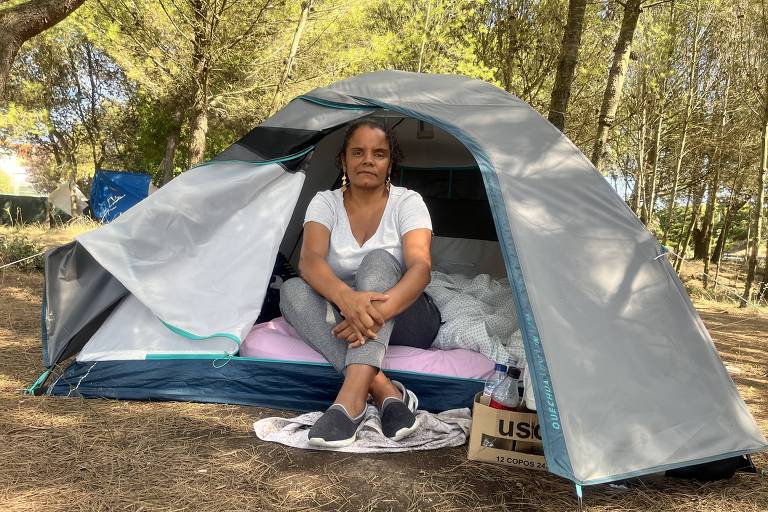Amid soaring prices for renting or buying a house in Portugal, there are more and more Brazilian immigrants forced into precarious housing situations, including overcrowded accommodation and even camping tents. In a wooded wasteland in front of Carcavelos beach, one of the most valued regions of greater Lisbon — next to an English school where the children of Lisbon's elite study, with monthly fees around €1,400 (R$7,400) — the number of improvised homes has been growing in recent months.
Among the new and old residents of the place, there are at least 20 Brazilians. Some are accommodated in old motorhomes, but most are housed in plastic tents.
The residents of the improvised camp, in an area known as Quinta dos Ingleses, are mostly Brazilian and Angolan immigrants, but there are also some Portuguese. Located in one of the most exclusive areas of the country, the 50-hectare plot of land, heavily wooded, is involved in a legal dispute that has halted the construction of a complex of luxury apartments and stores.
Residents' associations and environmentalists, in turn, are pressing for the space to be converted into a public natural park. While the situation is not resolved, improvised housing is proliferating. Those responsible for social security, however, say they are closely monitoring the situation in the area.
Márcia Álvaro, 43, arrived at the location after learning about a compatriot's experience with the improvised camping site. Born in Nova Iguaçu, Rio de Janeiro, she has been in Portugal for just over six months. "I always had the dream of coming to live here in Portugal. After my mother died, I decided to come for good."
Working with cleaning and selling meal boxes, Márcia was even able to pay for a rented room, but the amounts were not enough to cover all the monthly utility bills. Despite the difficulties, she did not want to return to Brazil. "Here you can walk around freely at any time, without fear of being robbed. Even though the salary is low, you eat well, your money has purchasing power. Once a week I eat shrimp."
Translated by Cassy Dias
